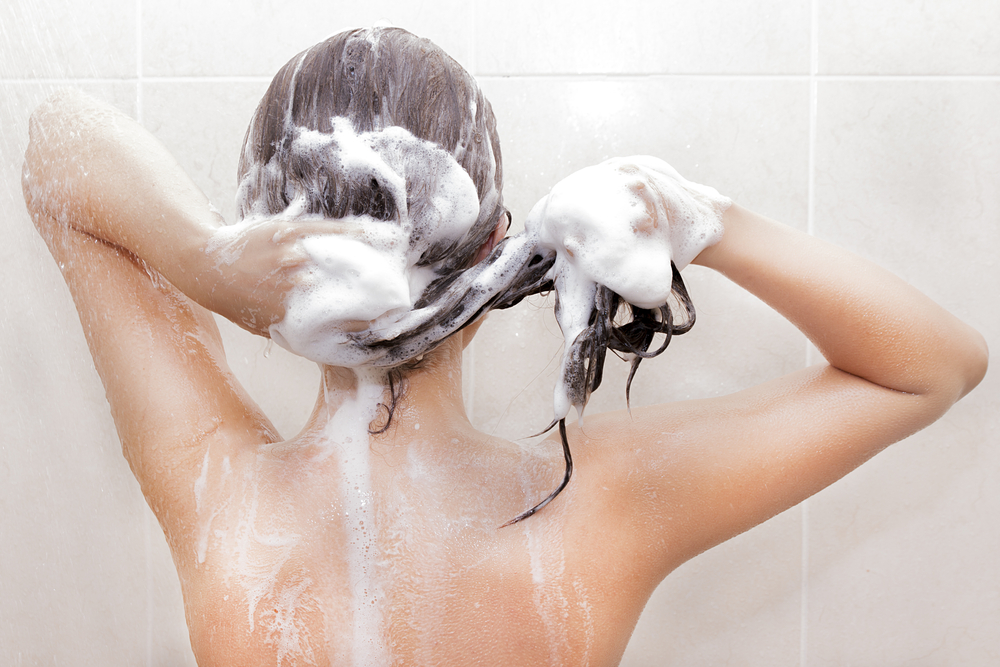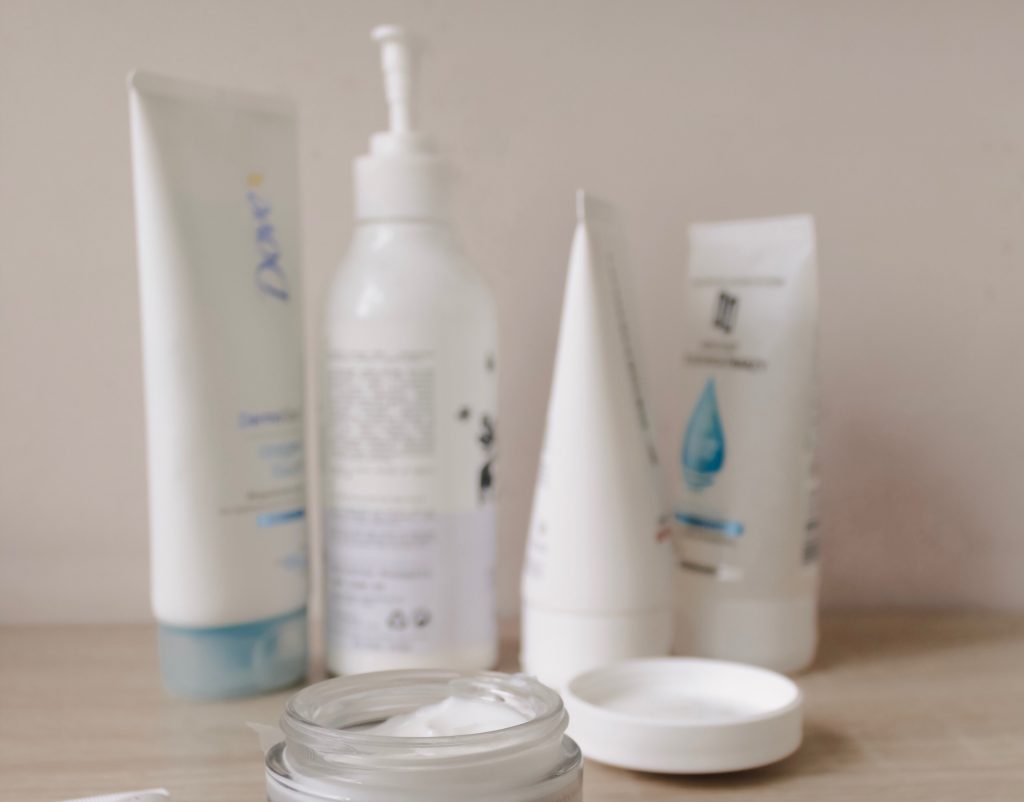Chances are, you’ve seen various organic labels and local brands touting their “sulfate-free” and “paraben-free” formulas on their label. Suddenly, products without sulfates and parabens have been dime a dozen on the market — beauty shelves are now stocked with different variations of these products, thrown in along with buzzwords like “organic” and “natural”.

Your own friends may have even particularly warned you to avoid particular ingredients like the plague. But just what exactly do sulfate-free and paraben-free mean, and what does it mean to avoid these ingredients? Are they really that bad? Here’s what you should know.
What are sulfates?
Sulfates, in a nutshell, are detergents or surfactants. If you’ve ever squeezed a bottle of shampoo, poured its contents on your head and worked up a sudsy, rich lather, that’s the sulfates working in action. They’re commonly found in products we can find in our own bathrooms, such as shampoos, body wash, and toothpaste. Similarly, they’re also found in heavy-duty cleaning products such as laundry detergent and dishwashing liquid. You may find these two, in particular, to be on the back labels of the most popular brands: sodium lauryl sulfate (SLS) and sodium laureth sulfate (SLES). So, yes, the same ingredient that’s used to strip off grease on last night’s dinner plates can also be found in the same bottles you use in the shower every day.
There isn’t anything inherently bad about sulfates per se, and any serious health concern, such as linking sulfates to cancer, has long been debunked. Manufacturers have been including sulfates in their products in the 1950s, and continue to do so every day because cheap, and they’re good at what they do: getting rid of grime, oil, and dirt. They’re the reason why your scalp always feels squeaky clean after a shower, and why your teeth feel refreshed and nicely scrubbed after brushing them.
So, what’s the problem?
We’ve established that sulfates are technically good, and they’re good at what they do, which is clean surfaces of oil and dirt. That being said, although they’ve long been used in personal care products and don’t pose any serious health risk, sulfates have been linked to skin and eye irritation, and dry and flaky scalps. That’s because sulfates could be a little too effective at what they do, that they’re stripping your scalp of its natural oils, which can lead to dry and brittle hair. When your skin is also particularly sensitive, this may also cause irritation like redness and itching. Products with sulfates could also possibly induce acne along the hairline, which most comes into contact with shampoo the most.
Even if irritated skin isn’t an issue for you, there are some people with certain hair types who would do better to skip the sulfates. Sulfates are also known to lift the cuticle, making curly hair more likely to frizz. People blessed with thick, coarse and textured tresses could benefit from sulfate-free formulas since conventional shampoos would strip them of their natural moisture and oils. Meanwhile, those who just got a dye job have long heard to stay away from sulfates, since these ingredients could speed up the fading process, leave a brassy undertone and dry hair out even further.
Still, there are certain people who still won’t benefit from a sulfate-free shampoo. If you find that you can’t go shower-free for longer than a day without looking oily, then you may need the extra boost from sulfates. Those with oily scalps could experience further buildup from sulfate-free shampoos, which would weigh their hair down.
What are parabens?
Meanwhile, parabens, though usually used in coexistence with sulfates, are different. Parabens are preservatives in many cosmetics and personal care products, such as makeup, lotions, shampoos, deodorants, and more. While sulfates have two most commonly used ingredients, parabens have six— methyl-, ethyl-, propyl-, isopropyl-, butyl-, and isobutylparabens.
Like sulfates, parabens aren’t inherently bad — in fact, their purpose even protects consumers as they inhibit the growth of bacteria and extend the shelf life of these products.
So, what’s so bad about them?
While they serve an important purpose, there has been growing concern that parabens have been considered as a potential risk for endocrine disruption. Endocrine disruption basically means putting the normal functions of the hormone system into haywire, possibly affecting growth, development, and reproduction within our bodies. Parabens have been found to mimic the activity of the hormone estrogen which could possibly affect the production of that hormone.
Parabens have also been shown to be present in breast tumors, and because estrogen receptors are associated with 70 percent of breast cancer cases, there is some concern that parabens could be contributing to this. It is worth noting, however, that these studies have been heavily debated, and that the United States Food and Drug Administration has declared that research has not been enough to conclude that parabens are indeed harmful.
So, what happens now? Should we stop using sulfates and parabens?
It’s difficult to categorically dismiss sulfates or parabens as bad and dangerous. Likewise, the trend of sulfate-free and paraben-free products could contribute to a completely different problem entirely. Because marketing companies are keen on milking their products as free of sulfates and parabens, new products that are coming out on the market could contain synthetic products that aren’t sulfates, but completely new and foreign substances that could potentially be more dangerous and deserve more thorough study.
Sulfates, in particular, are still widely adopted in the personal care industry and are still considered as safe and valuable ingredients in the products these companies manufacture. If you do find yourself suffering from skin irritation, avoid products with sodium lauryl sulfate (SLS), the strongest of them all. Instead, look for products with gentler surfactants such as ammonium laureth sulfate (ALS) and sodium alkyl sulfates. But if your hair can take it, or you’re convinced to swear off sulfates altogether, there are substitutions that work well to clean skin — but they can’t replicate the rich, foamy lather we’re all used to.
As for parabens, it’s important to note that most cosmetics companies use parabens in very little amounts, and in much lower dosages than what was reflected in the studies linking parabens to cancer. Moreover, most cosmetics contain methyl- and propylparabens, and are both considered as safe ingredients for cosmetics. That being said, if you’re staying on the safe side, your best bets are methyl- and ethyl-, said to be the safest of the bunch.

